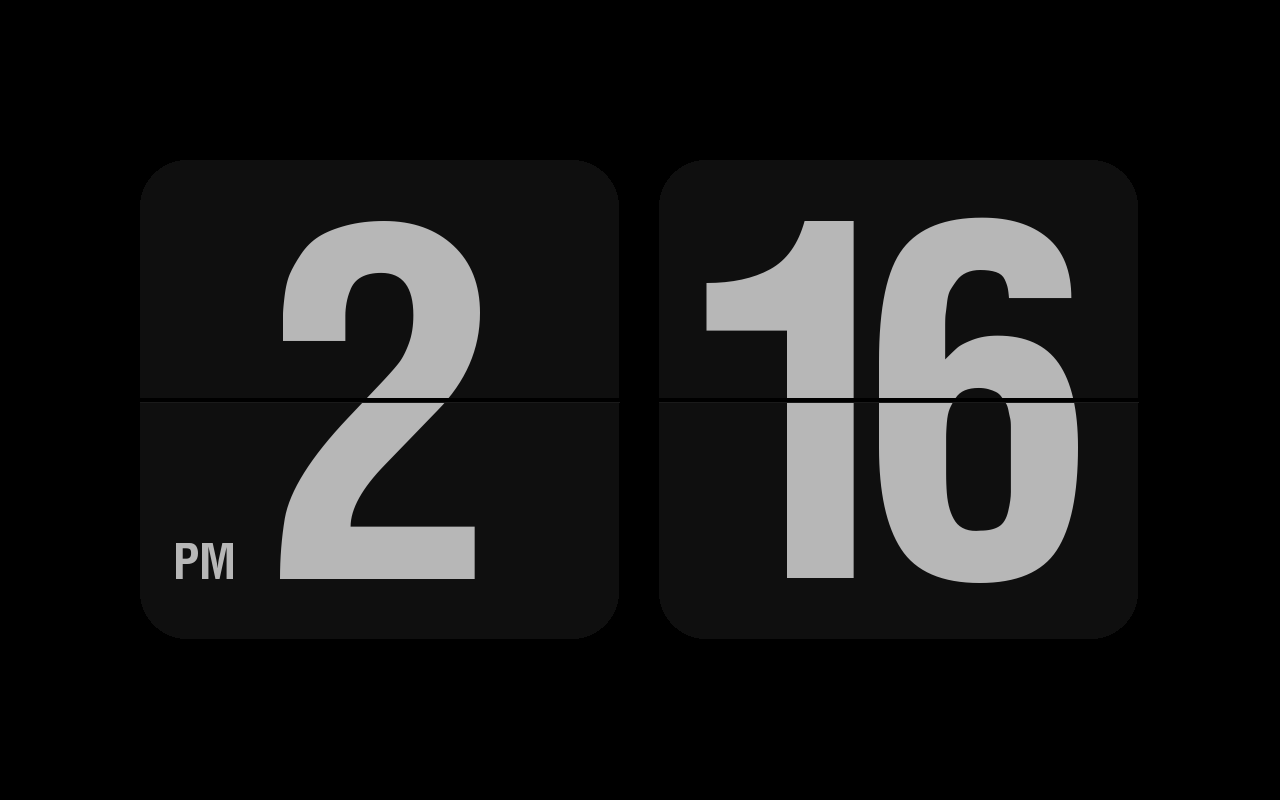| .gitignore | ||
| gluqlo.c | ||
| gluqlo.desktop | ||
| gluqlo.png | ||
| gluqlo.ttf | ||
| gluqlo.xml | ||
| LICENSE | ||
| Makefile | ||
| README.md | ||
Gluqlo: Fliqlo for Linux
Gluqlo (or Глюкало, if you prefer) is a SDL remake of well-known awesome Fliqlo screensaver which is originally avaliable for Windows and OSX platforms only. Gluqlo is inspired by (and to some extent is based on) noflipqlo aka Now Open Flipqlo 2.0 by Jacek Kuźniarski. Currently it's very close to original Fliqlo (as I hope).
Requirements
- SDL 1.2
- SDL_gfx 1.2
- SDL_ttf 2.0
- XScreensaver (optional)
Installing from PPA (Ubuntu from Vivid up to Xenial)
$ sudo apt-add-repository ppa:alexanderk23/ppa
$ sudo apt-get update
$ sudo apt-get install gluqlo
Building from source (Other distros)
First, install build-time dependencies (Ubuntu/Debian):
$ sudo apt-get install build-essential libsdl1.2-dev libsdl-ttf2.0-dev libsdl-gfx1.2-dev libx11-dev
Then compile and install as usual:
$ make && sudo make install
Usage
If you want to use Gluqlo as a screensaver, you may need to remove gnome-screensaver (which nowadays just does nothing)
and install XScreensaver (if you're using Ubuntu, see this page for detailed instructions).
Don't forget to add gluqlo to your ~/.xscreensaver config file (at programs: section):
gluqlo -root \n\
Otherwise, you can just run it as is.
Contributing
- Fork it!
- Create your feature branch (
git checkout -b my-new-feature) - Commit your changes (
git commit -am 'Add some feature') - Push to the branch (
git push origin my-new-feature) - Create new Pull Request!
